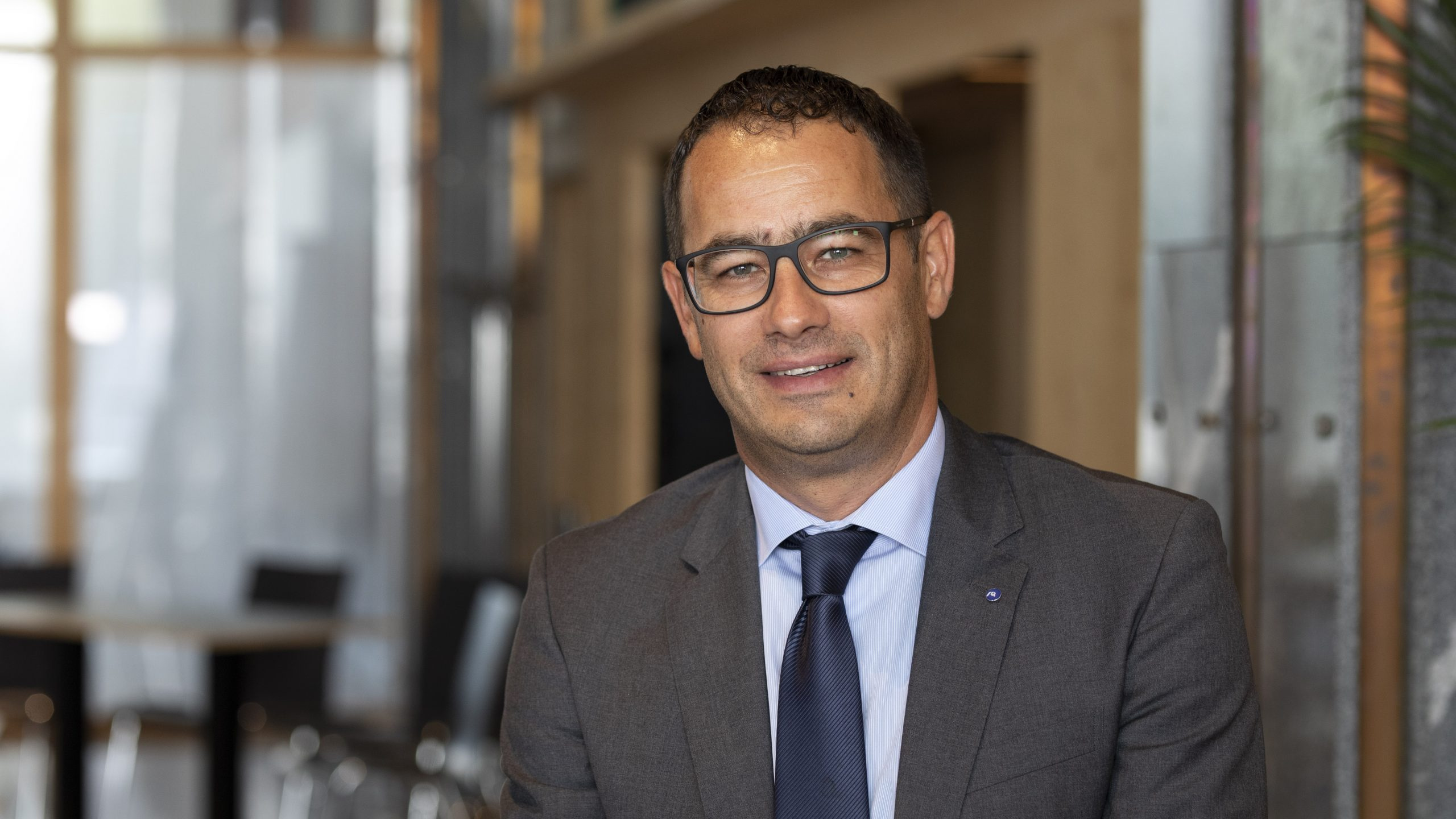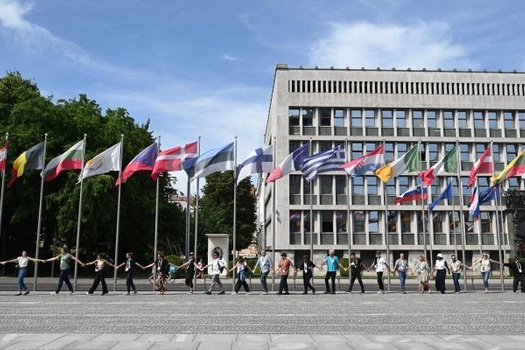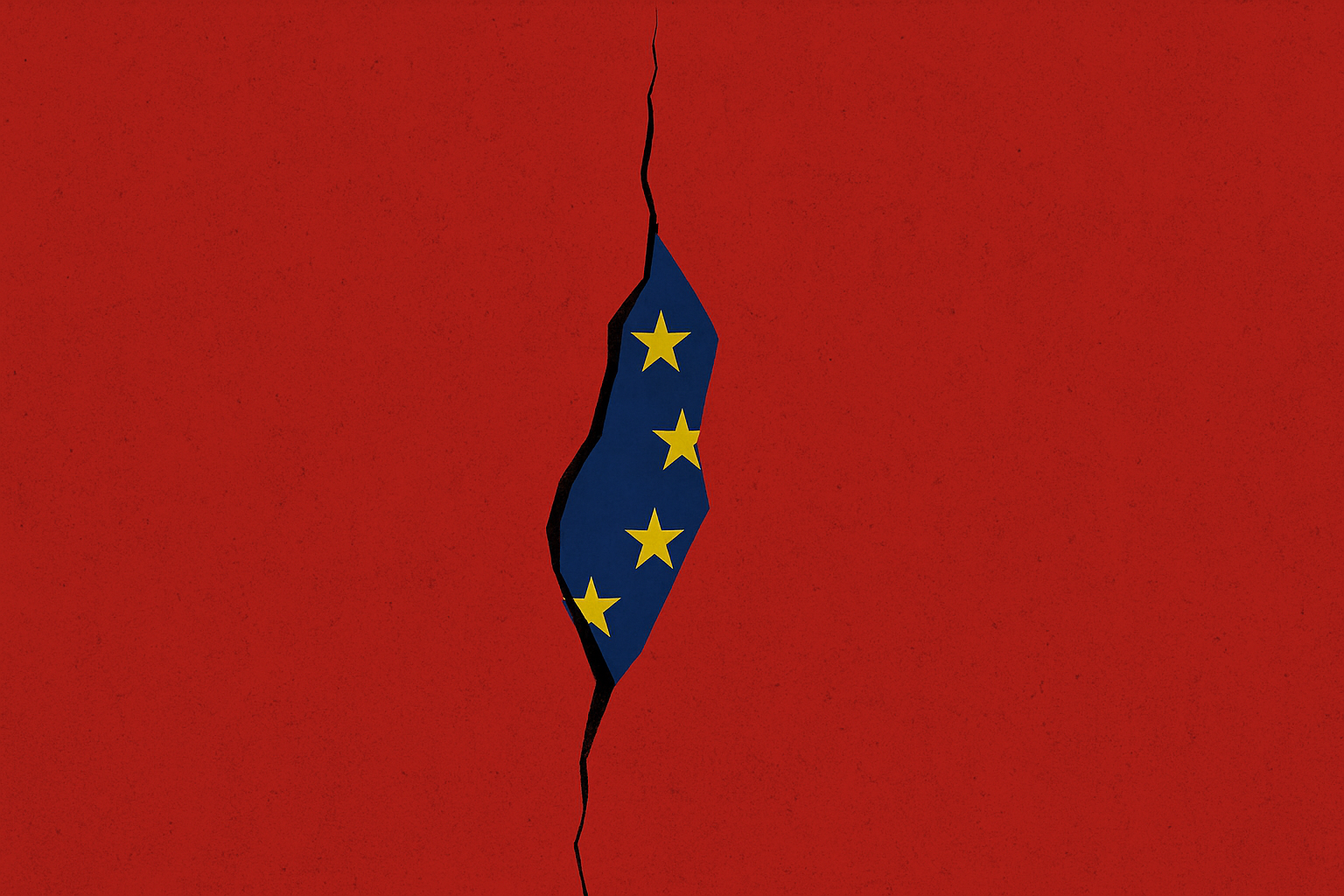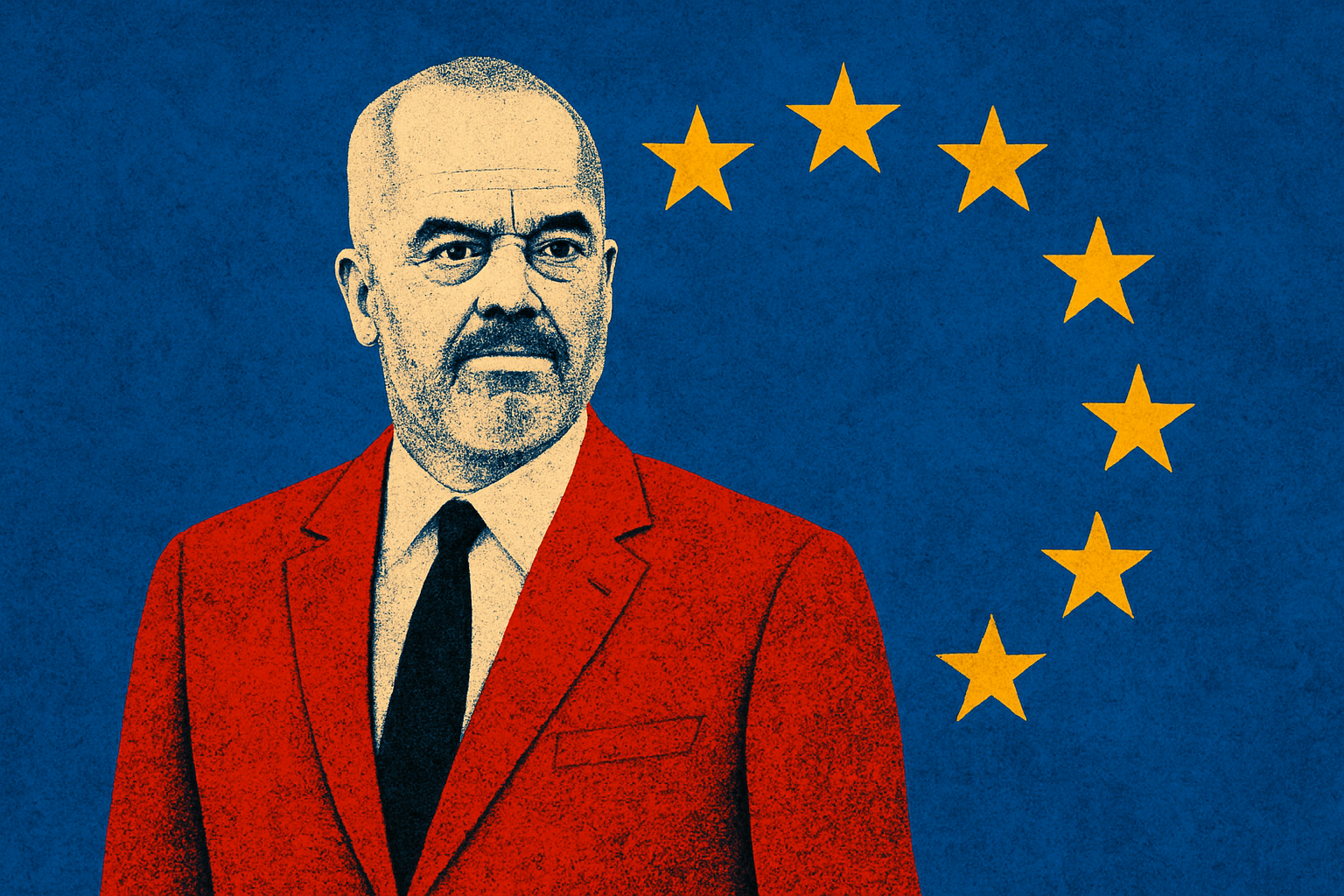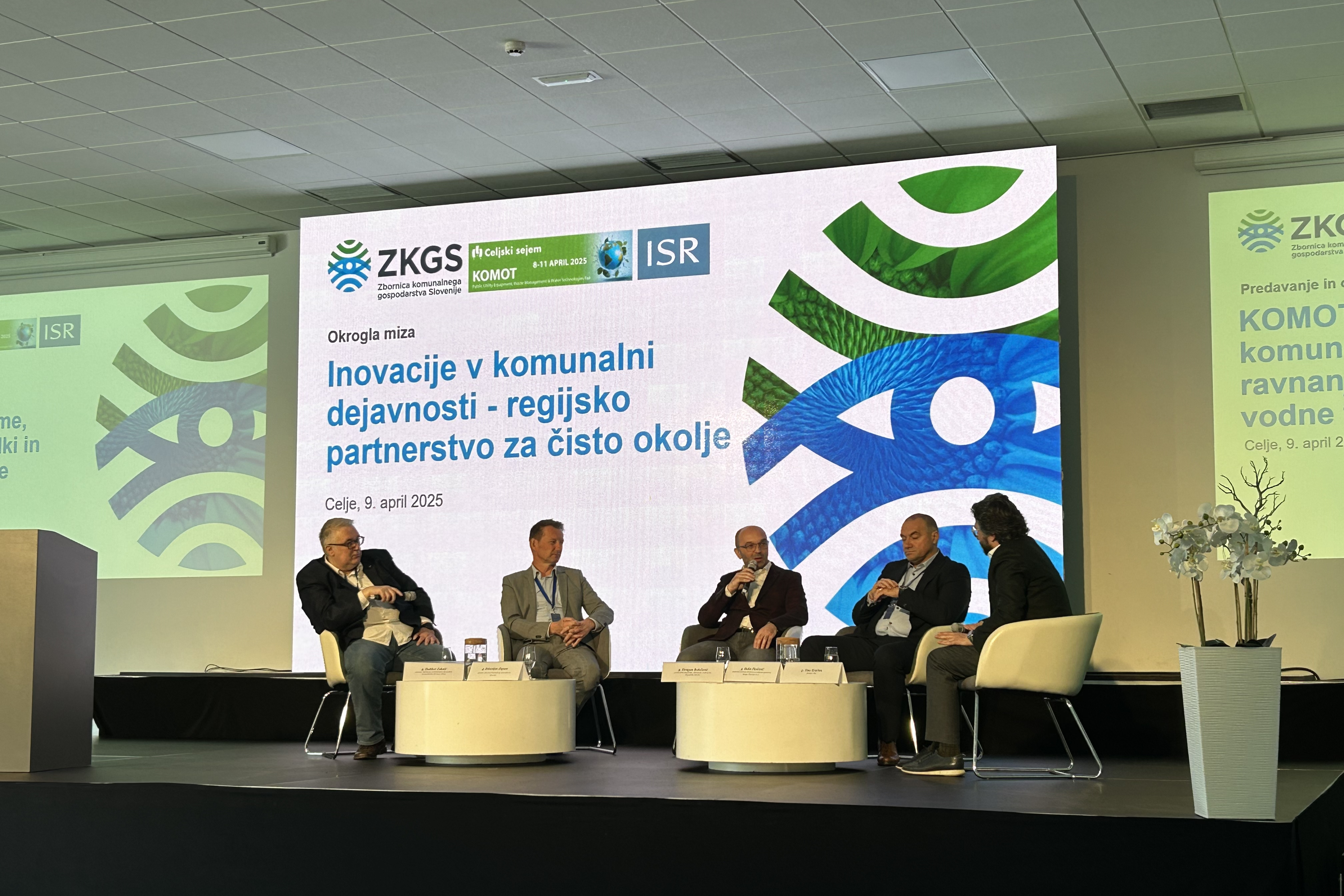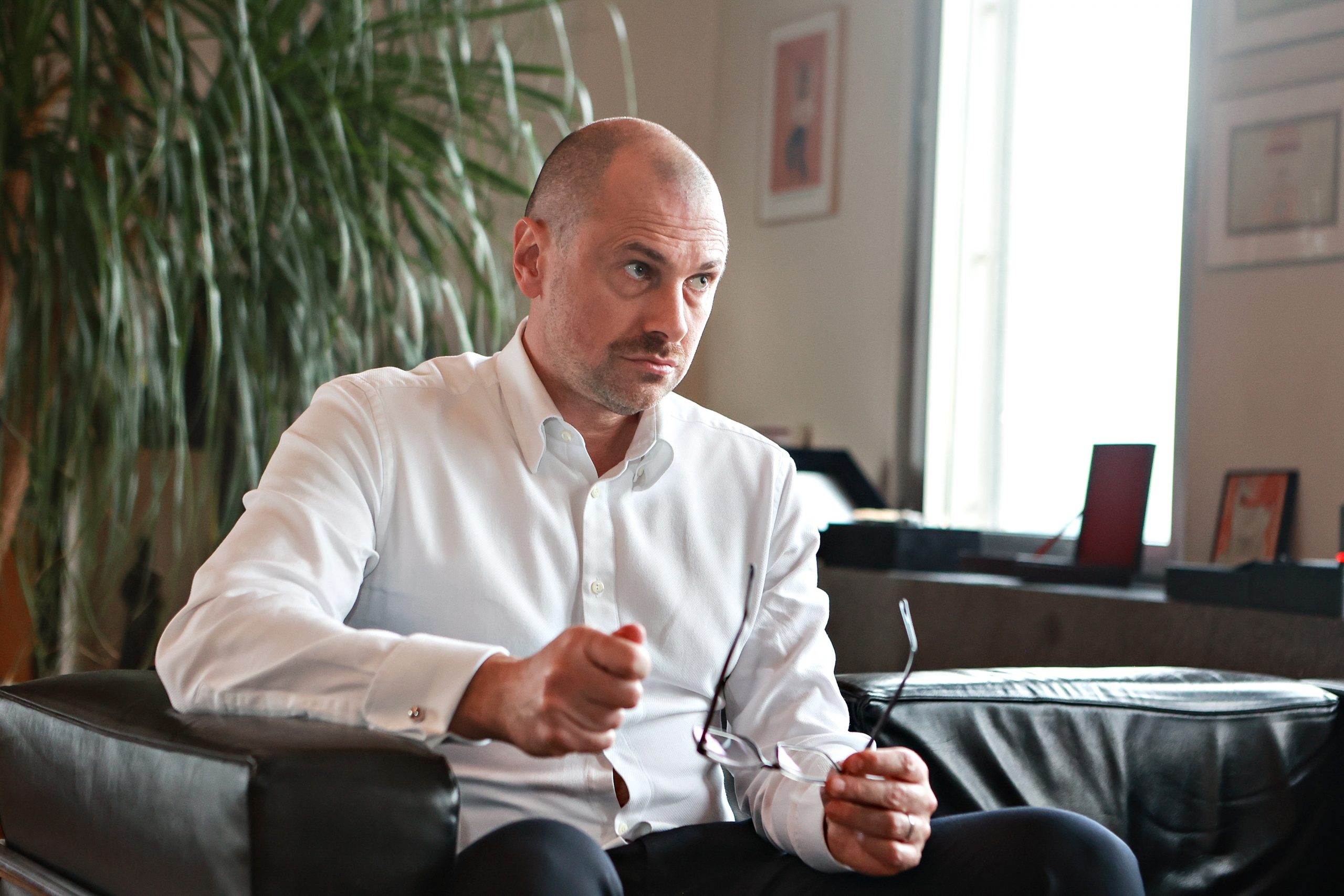Interview: Andrej Lasič
Sustainability: Leading by Example
Maja Dragovic
JOURNALIST
With almost 3 million customers, NLB Group is the leading banking group in the Southeast Europe region. The current geopolitical tensions and rising prices have an impact on its operations in the region, but the Group is well prepared for a possible deterioration of the business environment, says Andrej Lasič, a member of the NLB Management Board (CMO) responsible for Corporate and Investment Banking, who has been with the NLB for 10 years.
High energy prices are impacting the competitiveness of European companies, with many expecting a decrease in the demand for their products next year. How do you view the current state of the economy in Slovenia?
Though it is true that uncertainties are increasing due to inflation and rising energy prices, the state of the Slovenian economy is actually very good. This is evident in the very, very low unemployment numbers. Companies are still looking for a quality workforce which will continue to be very important. Productivity and profitability also remain high, and order books are full, which means that business operations will be stable for some time. The Slovenian economy is also one of the most diversified economies in Europe, since we do not depend on a single industry or a single market. Shocks are therefore easier to withstand compared to the economies that depend on individual industries.
Another evidence of the stable state of the economy is a record low indebtedness. At the end of November, Slovenian companies had approximately EUR 11,6 billion in loans, which represents 20% of GDP and is by far the lowest in Europe, where the average is 40% of GDP. For comparison: when entering the crisis in 2008, Slovenian companies had EUR 20 billion in loans, which was almost 60% of GDP at the time. The companies are therefore in good financial condition, with liquidity and low indebtedness, while at the same time the banks are also highly liquid and well capitalized.
All this are good predictions for the times to come, even though economists are aware that the growth of the past nine years cannot only go upwards indefinitely. There will be a certain correction, but the question is how severe it will be and how we will endure it. As said, compared to other EU countries, we are very well prepared. With a comprehensive and consistent policy that adequately supports all affected segments, and with the cooperation of all stakeholders in society, Slovenia can be among the winners. To illustrate I usually like to refer to the famous quote of Ayrton Senna said: ‘You can’t overtake 15 cars in the sun, but you can in the rain.’ The rainy times are definitely coming, however, the challenges also bring opportunities. We are convinced that our home SEE region has enormous potential in various areas, from infrastructure and logistics to the green transition.
How severe do you expect the crisis to be?
Perhaps it is a fortune in a misfortune that Slovenia and the SEE region are more used to the inflation than the countries in the Western Europe, where inflation has not been an issue for 70 years. Nevertheless, the rise in prices, especially of basic raw materials, is already causing a drop in purchasing power and, to a certain extent, the demand. The current crisis is most dangerous for labour-intensive industries and industries with relatively low added value and low profitability. But crisis would be worse if there was no supply of energy products, which would lead to a reduction or even halt of production in many places. With these inflationary shocks, I would advise companies to take care of working capital and liquidity.
On the other hand, common sense is returning: every new investment and new development will have to be carefully considered to mitigate short-term, especially supplier liquidity shocks in the entire economy. At NLB, we advocate long-term partnership, so I advise companies to come to us in time so that we can discuss their situation and ensure sufficient liquidity for the upcoming uncertain and challenging period.
How is NLB Group affected by the current economic conditions in the region?
All the countries in the region are recording solid economic growth and for the time being we are not seeing any major upheavals. It is also a good sign that all the countries are gradually integrating towards the European Union. The strength of individual countries will be reflected in how they react to the anomalies that are occurring, for example with a cap on energy prices. Our banks in the region are focused mainly on loans to residents and small and medium-sized companies, the span here is large, so we do not anticipate any major problems. These economies are not heavily involved in global trade which further mitigates their exposure to shocks.
As it stands at the moment, the hike in energy prices in 2023 will be ten-fold. How can the banks help companies weather the storm?
Banks can most definitely help. Precisely in connection with the energy crisis has NLB, for example, already played an important, systemic role. The government namely addressed the issue and helped the electricity segment survive the ups and downs of energy prices with systemic laws, NLB, however, was the one that organized all syndicated loans for this segment and provided it with the necessary liquidity so that Slovenia could obtain sufficient amounts of energy. From Ljubljana, we have also organized similar solutions for Montenegro, which had major problems with supply due to low water levels, and also for Serbia.
And now if we focus solely on companies: Slovenian companies have a robust cash flow, but their key challenge at this time is definitely the energy price. However, there have been some positive developments. At long last, we have seen the longawaited measures of the European Commission. The agreement of the EU members on the mechanism for limiting gas stock market prices has caused gas and electricity prices to fall considerably, and with this the offers for supplying Slovenian companies with electricity also fell. This is, for now, good news. If the prices are too high, then no economy will be able to sustain them. In this case companies would opt for extreme measures such as limiting and closing production, because they would not be able to cope with such energy costs.
So how can the bank help? On average, Slovenian economy has little debt, and our banks are extremely liquid and capital adequate. Taking care of working capital is key in companies, also due to rising energy costs, to ensure they have enough liquidity to weather any shocks. We will certainly help them with this. Companies must change their short-term business plan, especially the liquidity plan for the next few months. It is also necessary to prepare for the worst case scenario, define the extent to which the profitability of production survives and secure liquidity in time.
The change in business strategy due to the energy component will certainly be used by some companies for a simultaneous sustainable transformation. This is the right direction, which we enthusiastically encourage and support, as well as live by ourselves. In recent years, NLB and the NLB Group have focused intensively on integrating sustainability into our daily operations and promoting the transition to a low-carbon economy both in Slovenia and in the entire Southeast Europe region where we operate.
Could you explain in what way is NLB Group integrating sustainability in its own business?
True, in the NLB Group we have put sustainability of our decisions and actions at the heart of our business, and we are truly dedicated to these topics. What I would like to stress out in the beginning though is that contrary to the all-too-common misconception, sustainability doesn’t only include environmental (let’s say “green”) issues, but also equally important social and governmental components. In the NLB Group therefore, we are addressing all of them.
We have, for example, established the NLB Group Sustainability framework and upgraded our management of climate and environmental risks. As the first bank from Slovenia, we have committed ourselves to the UN Principles for Responsible Banking, and joined the United Nations Net Zero Banking Alliance.
We address the green strategy everywhere: we have consciously decided not to finance coal energy (this is mostly an issue in Serbia and Bosnia and Herzegovina), we are also intensely co-operating Alfi Green fund to finance green projects in our home region. We are introducing new sustainable products, such as the so-called green loans for corporate investments in the energy efficiency of commercial buildings and the reduction of the carbon footprint. Together with the EBRD and Erste, we have financed the wind farm project in Kosovo, which is already in operation and can supply more than 100,000 households with electricity, i.e. up to 10% of Kosovo’s consumption. Shortly, another similar project will be concluded in Serbia. In addition to financial support, we also have a great deal of knowledge and experience with which we can contribute to a company’s easier and smoother sustainable transition. Of course, we also take care of our own carbon footprint.
And how does this translate in concrete steps?
There are almost too many of them to list, but we can, perhaps, illustrate our efforts with our own, internal measures. For example: for almost 3 years now, NLB employees have had the option of a hybrid way of working, if the work process allows them to do so. It is a combination of working from home and working in the office (4 days: 1 day). This option is well received, so that well over 700 employees are already working in this way. This, on the one hand, significantly improves the quality of life of our employees, contributes to reducing the burden on the environment, and also reduces the need for office space. So, in a few years we will be able to transfer our headquarters from the current building which was built in the 1970s and is, from the energy point of view, vastly inefficient to premises outside the strict city center which will be green and self-sufficient.
We are very successful and actively supporting our customers in the region to learn how to use digitalised services so visiting branches will no longer be necessary. Less branches will significantly reduce the carbon footprint.
All our efforts have already yielded recognition. We are very proud that NLB received its first ESG (Environmental, Social and Governance) rating in December last year by Sustainalytics, one of the world’s leading independent ESG research, ratings and data firms. The ESG Risk Rating places NLB among the best 15% banks assessed by the company and we are the first bank with headquarters and an exclusive strategic interest in Southeast Europe which has obtained this rating.
You are focusing on supporting green projects in a region that still heavily relies on coal for energy production. How can this coal reliance be reversed?
This is not the case for the whole region. Croatia has made big strides in transforming its energy production and consumption. There is also a huge opportunity for Slovenia and Croatia to find a common solution for nuclear energy (as transitional energy) because there is already joint ownership of the Krško nuclear plant. Montenegro is also relatively self-sufficient and its energy production is approximately half green and half thermal.
The countries with the most challenges in this field (and, on the other hand, also the most opportunities) are Bosnia and Herzegovina, Serbia and North Macedonia. In BiH, all energy production comes entirely from coal, hence why its cities are the most polluted in the world and one of the reasons why its inhabitants are leaving the country.
NLB Group generated EUR 377.8 million of profit after tax in the first nine months in 2022, a substantial increase compared to the same period in 2021 when the profit amounted to EUR 205.5 million.
But the problem is exasperated further because BiH doesn’t have the resources or access to financial markets to deal with the problem itself and this is where I believe the European Union has to step in and put together a comprehensive development plan or strategy for the region. It namely needs to invest in energy infrastructure to clean up the air. Furthermore, the region is also in dire need of investments in other infrastructure, especially roads and railways. Getting from Ljubljana to Sarajevo, Skopje or Podgorica is currently mission impossible and these key cities need to be connected. These are all common sense, but highly demanding and important measures that need to be taken in the region as soon as possible in order to enhance the quality of life, which is paramount if we wish to keep young people and talents. In the NLB Group, we are strongly advocating all of this and supporting these incentives with everything that is at our disposal. Last but not least, this is our home and we want to see it thrive.
THE ADRIATIC
This article was originally published in The Adriatic Journal: Strategic Foresight 2023.
If you want a copy, please contact us at info@adriaticjournal.com.

